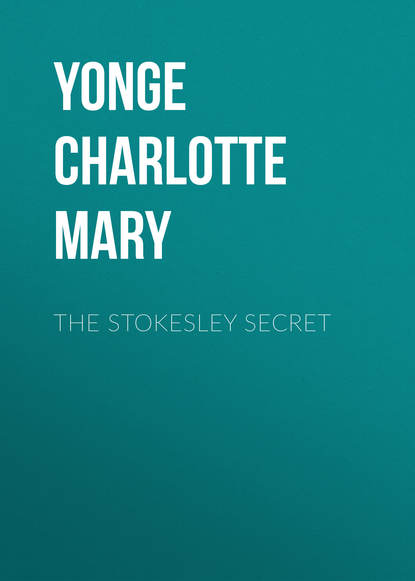По всем вопросам обращайтесь на: info@litportal.ru
(©) 2003-2024.
✖
The Stokesley Secret
Настройки чтения
Размер шрифта
Высота строк
Поля
“Different pigs cost different prices,” quoth the oracle, so sententiously, that Miss Fosbrook’s shoulders shook with laughing as she stood a little in the background of the eager heap in the window.
“A nice little pig, such as you’d give—”
“Hush, hush, Hal, it’s a secret,” cried Susan.
“A pretty sort of secret—known to eight already, and bawled out all over the yard,” said Sam.
“But don’t tell him what it’s for; you can ask him without that.”
“A nice little young pig,” said Sam, “such as you’d keep all the summer, and fat in the winter.”
“Mind, it ain’t for you, Purday,” cried Hal.
“Never fear my being disappointed, sir,” said the free-spoken Purday, with a twinkle of his eye, which Hal understood so well that he burst out,
“Ah! you think I can never do what I say I will; but you’ll see, Purday, if we don’t give a pig to—”
He was screamed at, and pulled into order and silence, ere the words, “Hannah Higgins” had quite come out; and Sam repeated his question.
“Well,” said Purday at last, “if pigs was reasonable, you might get a nice little one to fat, at Kattern Hill fair, somewhere about ten shillings, or maybe twelve—sometimes more, sometimes less.”
“Ten shillings!” The community stood round and looked at one another at the notion of such an awful sum; but Hal was the first to cast a ray of hope on the gloom. “Kattern Hill fair ain’t till Midsummer, and perhaps Grandmamma will send us some money before that. If anybody’s birthday was but coming!”
“Better save it out of our allowance,” said Sam. “How long is it to the fair?”
Miss Fosbrook’s pocket-book declared it to be four weeks.
“Well, then,” said Hal, “we three big ones have sixpence a week each, that’s six shillings, leaving out stingy Bess, and the little ones threepence, that’s three times three is nine, and three times nine is thirty-six, that’s three shillings, and six is nine, and very near four is fourteen. We shall do the pig yet.”
“Yes, Hal; but if pigs are reasonable, I am afraid three times nine never yet were so much so as to make thirty-six,” objected Miss Fosbrook.
Sam whistled.
“Twenty-seven—that’s three and twopence—it’s all the same,” said Hal; then at the scream of the rest, “at least two and threepence. Well, any way there’s plenty for piggy-wiggy, and it shall be a jolly secret to delight Hannah Higgins, and surprise Papa and Mamma: hurrah!”
“Yes,” said Sam; “but then nobody must have any fines.”
“Ay, and Sue must keep her money. That will be a wonder!” shouted Harry.
“Well, I’ll try,” said Susan. “I’ll try not to have a single fine, and I’ll not buy a single lump of sugar-candy, for I do want poor Hannah to have her pig.”
“And so will we!” cried the younger ones with one voice.
“Only,” added Susan, “I must buy Dicky’s canary seed.”
“And I must have a queen’s head to write to Mamma,” said Annie.
“Oh! never mind that, such trumpery as your letters are,” said Hal. “Mamma could say them by heart before she gets them. What does she care for them?”
Little Annie looked very deplorable.
“Never mind, my dear,” said Miss Fosbrook, “mammas always care for little girls’ letters, and you are quite right to keep a penny for your stamp for her.—You see, Hal, this scheme will never come to good if you sacrifice other duties to it.”
Henry twirled round impatiently.
“Now suppose,” said Miss Fosbrook, “that we set up a treasury, and put all in that we can properly afford, and then break it open on the day before the fair, and see how much we have.”
“Oh! yes, yes,” cried the children in raptures.
“Will you help, Miss Fosbrook?” said Susan, clasping her hands.
“I should like to do a very little, if you will take this silver threepenny; but I do not think it would be right for me to spare one penny more, for all I can afford is very much wanted at home.”
“What shall we have for treasury?” said Hal, looking round.
“I know!” cried Susan. “Here, in the baby-house; here’s the Toby, let’s put it inside him.”
The so-called baby-house was an old-fashioned cupboard with glass doors, where certain tender dolls, and other curiosities, playthings too frail to be played with and the like, were ranged in good order, and never taken out except when some one child was unwell, and had to stay in-doors alone.
Toby Fillpot was a present from Nurse Freeman. It was a large mug, representing a man with a red coat, black hat, and white waistcoat, very short legs, and top-boots. The opening of the cup was at the top of his head, and into this was dropped all the silver and pence at present mustered, and computed to be about four shillings.
“And, Miss Fosbrook, you’ll not be cross about fines?” said Johnnie, looking coaxing.
“I hope I shall not be cross,” she answered; “but I do not engage to let you off any. I think having so good a use to put your money to should make you more careful against forfeiting it.”
“Yes,” said Johnnie disconsolately.
“Well, I never get fined,” cried Hal joyfully.
“Except for running up stairs in dirty shoes,” said Sam.
“Oh! there’s no dirt now.”
“Let me see, what are the fines?” said Miss Fosbrook.
“Here’s the list,” said Susan; and sighing, she said, “I’m afraid I shall never do it! If Bessie only would help!”
The fines of the Stokesley schoolroom were these for delinquencies—each value a farthing—
For being dressed later than eight o’clock.
For hair not properly brushed.
For coming to lessons later than five minutes after ten.
For dirty hands.
For being turned back twice with any lesson.











